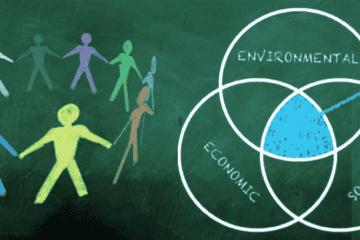What is Social Value?
Social value has been defined as “‘the additional benefit to the community from a commissioning/procurement process over and above the direct purchasing of goods, services and outcomes”. Suppliers can have a substantial positive impact on local communities beyond the direct remit of their contract. And by aligning social value commissioning with local strategic needs, public bodies can use their supply chains to help them achieve local targets.
The Public Services (Social Value) Act 2012 requires public bodies to consider how the services they commission and procure might improve the economic, social and environmental well-being of the area.
Whilst there are many examples of providers delivering social value available to illustrate this, there is no authoritative list of what these benefits may be. The reason for this flexible approach is that social value is best approached by considering what is beneficial in the context of local needs or the particular strategic objectives of a public body. In one area, for example, youth unemployment might be a serious concern, whilst in another, health inequalities might be a more pressing need.
In recognition of this, the Public Services (Social Value) Act does not take a prescriptive approach. It simply says that a procuring authority must consider:
- How what is proposed to be procured might improve the economic, social and environmental well-being of the relevant area.
- How, in conducting the process of procurement, it might act with a view to securing that improvement.
The commissioner needs to look at the wider value that a service can bring, for example, both the primary outcome for which the service has been commissioned, plus any additional benefits it can have to the wider community – secondary and potentially tertiary benefits. This recognises that every time the public sector spends money, it should do so in a way that achieves as many of its overall objectives as possible.
As a result, tenders will often ask providers to make commitments to add to the local community benefits over and above the services being procured. They may ask for specific commitments in specific areas of public policy, or leave it up to the provider to decide how they want to add additional value. Either way, a bidder must examine the local plans and requirements of the authority to address local needs and priorities.
Providers should ideally have an existing Social Value Policy. Rather than adopt a set of loose commitments and a promise to “do good”, a social value policy can and should be defined in terms of the benefits that it promotes, such as:
- Promoting training and employment opportunities, often for under-represented groups, for example for youth employment, women’s employment, the long-term unemployed and people with physical or learning disabilities
- Promoting compliance with social and labour law, including related national and international policy commitments/agendas
- Promoting SMEs and civil society organisations through partnership and supply chains
- Demonstrating socially responsive governance
- Promoting fair and ethical trading
- Ensuring more effective and efficient public expenditure
- Contributing to health improvement priorities
- Stimulating social integration
- Stimulating demand for environmentally-friendly goods, services and works
- Contributing to climate change mitigation targets and to energy efficiency
If you are not sure of what you can do to add social value, check the council website for details of their social value plans, local area plans, environmental policy and sustainable community plans. For some practical ideas of what companies can do, see the Provider Toolkit published by Manchester City Council.
Providers who are working towards social value commitments should monitor performance to use as evidence of new commitments which might be made in a tender. Case studies of past social value delivery on pervious contracts (ideally with an associated monetary value) can be used to support future tender submissions.

